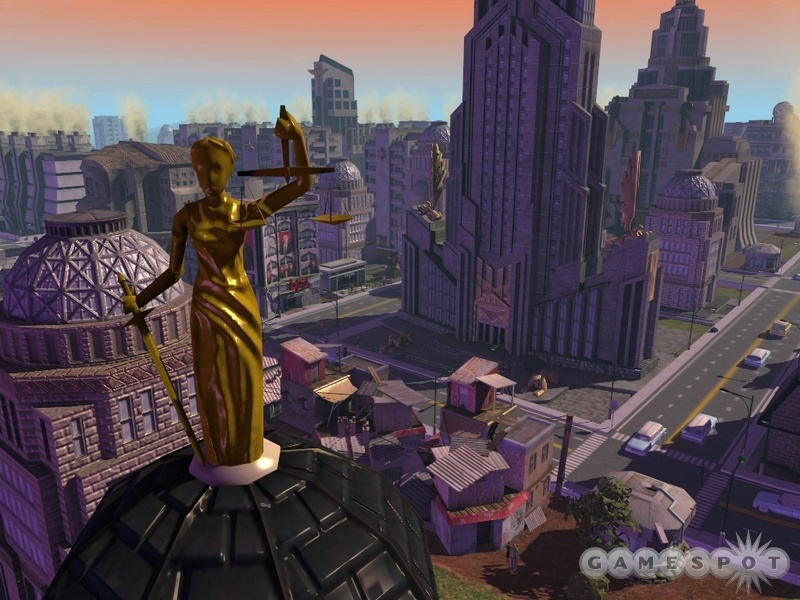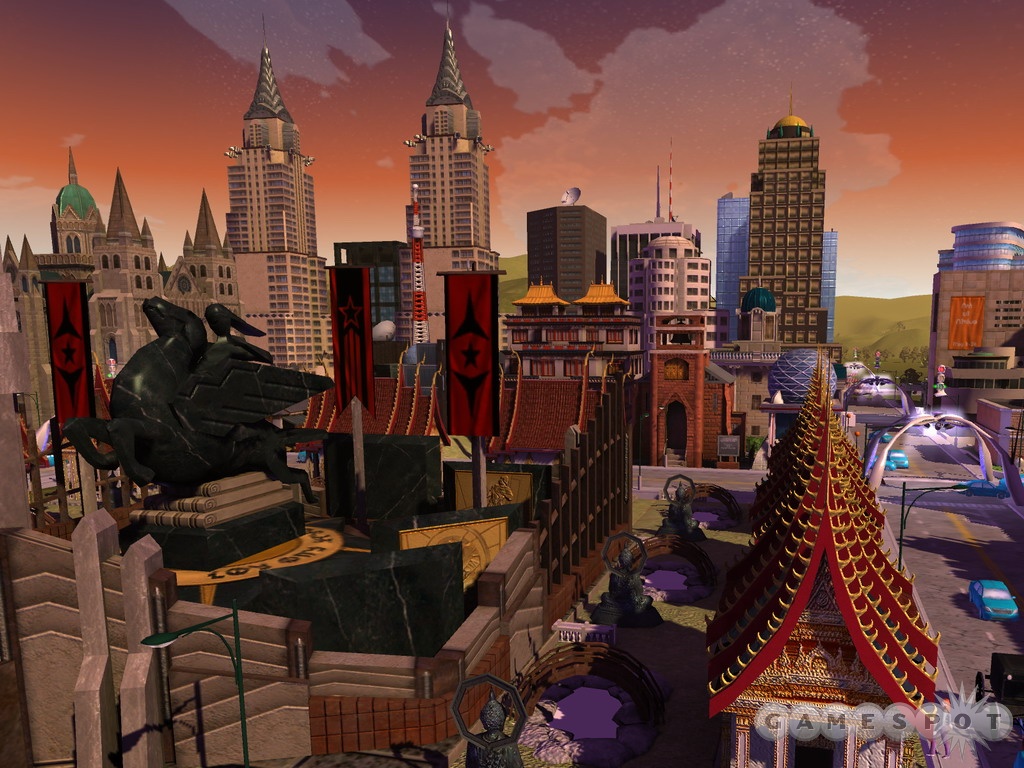SimCity Societies First Impressions - Urban Renewal for a Famous Franchise
The SimCity franchise gets rebooted with SimCity Societies, a game that tosses out much of the legacy gameplay and starts over from scratch.
Before The Sims arrived on the scene and dominated PC game sales charts, Maxis' key franchise was SimCity, the iconic city-building game. As a mayor in SimCity, you have to balance all the needs of a city. For instance, the citizens want houses and jobs; businesses need an educated workforce; industry requires workers and infrastructure; and more. However, as anyone who has played SimCity and its sequels knows, trying to incorporate all these needs into a single city is a huge challenge. Of course, meeting that challenge is the rewarding part of the game. While this formula has served the series for almost two decades, it's about to get a big overhaul.

More than four years have passed since the last SimCity game was released, and that's an epoch in computing terms. So EA and Maxis recently announced a new SimCity game, but it's one that's completely unlike any of its predecessors. SimCity Societies will be the first SimCity game that's not developed directly by Maxis. Instead, work on the game is being done primarily by Tilted Mill, the developer of city-building games Caesar IV and Children of the Nile. As such, Tilted Mill brings an outside perspective to SimCity, and that has translated to a fresh new angle to the series. And in many ways, SimCity Societies feels like a reboot of sorts for the franchise.
One of the driving forces behind SimCity Societies was a sense that the SimCity games had become a bit too complex. Building a city in SimCity 4, the previous game in the franchise, required a lot of work as you tried to build and connect regional cities to form a massive metropolitan region. In fact, one intrepid fan even built a virtual copy of New York City. Though rewarding in its own way, SimCity 4 lacked the simplicity and fun of the original game, which the producers of SimCity Societies noted. Thus, SimCity Societies takes a wrecking ball to all of the complexity that has built up over the past 18 years.
Much that you know about SimCity is pretty much gone in SimCity Societies. For example, the familiar zoning system that let you designate whether land could be used for residential, commercial, or industrial purposes is no more. Now, you just put down buildings--any kind of building you want. The idea behind this is that what's important is the kind of energy the building radiates. Energy is the major new concept in SimCity Societies, and it will let you build the kind of city that you want. If you want an Orwellian society, then build a lot of government buildings to radiate obedience, as well as high rises for wealth energy and industrial buildings for, well, industry. Or if you want to build a quiet, pastoral society, then build monasteries and farms for devotional energy, as well as castles or gingerbread houses (yes, that's right) for creative energy. If you want to build a college town, then go for knowledge energy by building schools and universities. Of course, these are just a sample of the buildings in the game because there will be hundreds to pick from, with about two-thirds of them waiting to be unlocked. The appearance of your city and its environs actually change depending on the energies in the city. Orwellian cities will look very bleak, with harsh, oppressive skies overhead, while pastoral cities will look sunny and tranquil.

Additionally, SimCity Societies will track and model the citizens in your city to a greater degree than before. In earlier SimCity games, the population was abstracted for the most part, though you could create and track individual sims to get an idea of how your city was working. It sounds like SimCity Societies will actually track and model every citizen in your city. If you played any of Tilted Mill's earlier games, then you know that was the case in those games as well. This will result in a smaller population than prior SimCity games, and you won't be building cities with tens of thousands, let alone hundreds of thousands, of people. But you will need to worry about their wants and needs. For example, if you build an industrial city full of factories and low-income housing, you'll need to keep the workers happy. You can do so by building dive bars and liquor stores, though the price of that will be a lot of drunks, as well as an uptick in crime.
SimCity Societies will also bring you a lot closer to the action. The graphics engine looks similar to the ones used in Caesar IV and Children of the Nile, so the camera is lower to the ground than earlier SimCity games. This lets you see the goings-on in your city from up close. You can also pull the camera back to take in larger swaths of terrain, though we didn't see the extreme zoom outs seen in earlier SimCity games.
There's little question that SimCity Societies represents a huge change of direction for the franchise. It seems that the focus is not so much on building a city than it is on building a society. So how those changes are accepted will be interesting to see. SimCity Societies is scheduled to ship this holiday season.
Got a news tip or want to contact us directly? Email news@gamespot.com
Join the conversation